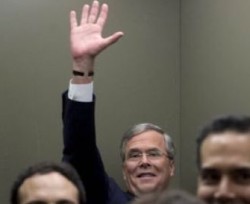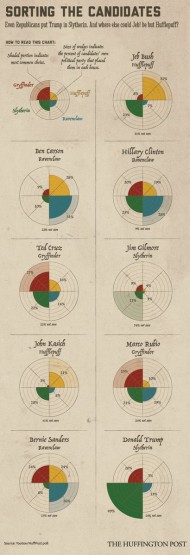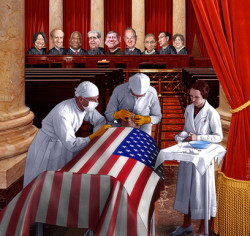Category Archives: Newsroom
Joel Kotkin discusses the Geography of Inequality and how housing is exacerbating the two Americas. More from Wendell Cox.
Bjorn Lomborg argues that sometimes it’s not worth fighting third-world corruption.
Joseph Pearce writes of rescuing maidens from the dragon culture.
Eleanor Sharman explains how she became a victim of feminism.
It sure seems to me that the University of Idaho is headed for the Big Sky Conference. New Mexico State may have an easier time of it.
A liberal clerk of Scalia sings his praises.
Jack Smith investigates why batteries on ecigarettes, hoverboards, and other electronics keep exploding.
Are trafficked prostitutes victims or perpetrators of crime?
As far as “How to fix Twitter” suggestions go, these from Randi Harper seem really good. I think it’s important to allow pseudonymity, but favoring those who are willing to unmask – or at least submit their phone number to Twitter itself – seems prudent.
The $3,000,000,000,000 wealth transfer of the Oil Crash.
Companies tracking employee pregnancies seems creepy, but Emily Crockett says we shouldn’t be so freaked out.
George Packer investigates why leftists go right.
What can Bernie Sanders really do about mass incarceration? Ryan Cooper says that he can lead the way on bail reform.
In order to continue accepting welfare benefits, Utah may be requiring “Self-Reliance Training.”
Christian Jarrett reports that contrary to what we might think, our brains do better in the winter than the summer. I’d always thought that was the case for me, but I figured it had to do with being raised in the southern heat when winter is the only tolerable season and summer is exhausting in its very existence.
1. A little riff on what America today's political dysfunction means for capitalism.
— Richard Florida (@Richard_Florida) February 14, 2016
2. You don't have to be a neo-marxist to recognize that dysfunction in American politics especially in the GOP is not good for capitalism.
— Richard Florida (@Richard_Florida) February 14, 2016
3. A key function of government is to maintain the integrity of the economic system & enable so-called "capitalist accumulation."
— Richard Florida (@Richard_Florida) February 14, 2016
So Donald Trump exceeded expectations in New Hampshire to the point that I almost immediately upgraded his possibilities. It wasn’t so much that he won, which was expected, or that he got 35% in and of itself, but that he over-performed. That adjusts everything because it means I can no longer look at Trump-friendly polls with the degree of skepticism that I had been. His support is real, and according to exit polls strikingly uniform across almost every line. In a state where immigration did not rank as an issue. He remains a Shibboleth executioner, with uncertain ramifications. While the collapse people have been waiting for since August isn’t happening, there is some evidence of potentially weakening support. How much remains to be seen. I am a lot less worried that he will get 40% than I was. Even 35% seems less likely. On the other hand, South Carolina is allegedly a state where he has an unusually good ground game. And it’s an open primary and not a caucus. I ran a bunch of numbers and if Trump gets 37% of the vote, he may have some difficulty getting the nomination outright, and I suspect he has difficulty getting the nomination from a brokered convention. The good news for Trump is that if he underperforms, there’s a decent chance he immediately rebounds in Nevada.
 In Bushland, things are looking awfully bleak for Jeb Bush with the first real rumors that he might drop out surfacing and indications that it might be as soon as Sunday. It’s possible that this is a skewed representation, but the vibe on Twitter from the campaign is that of a deflated candidate. Which must mean that there are internals showing a much more dour picture than the public polls, which range from “terrible” to “fighting chance.”
In Bushland, things are looking awfully bleak for Jeb Bush with the first real rumors that he might drop out surfacing and indications that it might be as soon as Sunday. It’s possible that this is a skewed representation, but the vibe on Twitter from the campaign is that of a deflated candidate. Which must mean that there are internals showing a much more dour picture than the public polls, which range from “terrible” to “fighting chance.”
Ben Carson looks like he might be approaching the end of his campaign sooner rather than later. Unlike Kasich and Bush, this may prove to be helpful to Trump as the “second choice” numbers are not great, but anything that helps move Trump to 40% is good for him, and this would move him without putting someone else closer to him. He doesn’t seem to gain a majority of Carson’s support, but nobody else gains more.
Who knows what exactly is going on with John Kasich, other than that some polls really like him and others don’t.
In the last installment, I said that Marco Rubio was “done” if he didn’t place in the top four in New Hampshire. That appears to have been premature as he has rebounded impressively. I had not counted on #3-5 all being within a point of one another in essentially a tie. Some are pointing at his rebound as an example of press being deferential, but I think it’s mostly earned. When you’re down, it’s easy to spiral into self-destruction and he didn’t. There is also a reason why he keeps getting a degree of credibility above what his poll numbers indicate, which is that the potential has always been there. That said, the liabilities are also. Some of the late poll movement appears to be in his direction, though other poll movement not-so-much. Which is par for the course in South Carolina polling this time around.
 Which leaves us with Ted Cruz, and the uncertainty surrounding him. I’m getting a pretty desperate vibe from him, and South Carolina is a state where he has to do well. Most of the polling has him where he needs to be, but some outliers suggest that he could fall behind Rubio. If that happens, it’s going to be difficult for him. The uniformly seering contempt the other candidates have for him may be dogging him, and he has run into consecutive bad news cycles as various unsavory campaign actions come to light. If he falters, the beneficiary may to be Rubio. As much as Rubio seems to be shaping up to be the Establishment candidate, indications are that there is a lot of crossover potential. Unidirectional, though, because Cruz supporters presently seem to like Rubio more than the other way around. But while Cruz has the most to lose from this particular state, he also has the most gain. If Trump’s support is softening and he can be neck-and-neck with him and Rubio a distant third, he gets the “Two man race” narrative that he needs (at least for a cycle). Unfortunately, he’s made it increasingly tough for the rest of the party to rally around him. After New Hampshire, I was really high on his chances. Right now, I’m not.
Which leaves us with Ted Cruz, and the uncertainty surrounding him. I’m getting a pretty desperate vibe from him, and South Carolina is a state where he has to do well. Most of the polling has him where he needs to be, but some outliers suggest that he could fall behind Rubio. If that happens, it’s going to be difficult for him. The uniformly seering contempt the other candidates have for him may be dogging him, and he has run into consecutive bad news cycles as various unsavory campaign actions come to light. If he falters, the beneficiary may to be Rubio. As much as Rubio seems to be shaping up to be the Establishment candidate, indications are that there is a lot of crossover potential. Unidirectional, though, because Cruz supporters presently seem to like Rubio more than the other way around. But while Cruz has the most to lose from this particular state, he also has the most gain. If Trump’s support is softening and he can be neck-and-neck with him and Rubio a distant third, he gets the “Two man race” narrative that he needs (at least for a cycle). Unfortunately, he’s made it increasingly tough for the rest of the party to rally around him. After New Hampshire, I was really high on his chances. Right now, I’m not.
After New Hampshire, my internal odds went from roughly one-third to Rubio and Cruz and a fifth to Trump to around 40% for Trump and Cruz and 20% for “other” (including Rubio, Kasich, Jeb, and a brokered convention that either Mitt Romney or Paul Ryan would come out of, if not one of the actual candidates).
Here is the breakdown of what each candidate needs to happen:
Donald Trump
1st Place: This needs to happen. If it does, then what it does for him will be determined by the placement of the other candidates.
2nd Place: This can happen, and Nevada can supply a rebound for him to help him get back on track. It will still speak to some vulnerability, though.
3rd Place: I don’t want to say he’s done because I was wrong about Rubio, but… it’s hard to see how he comes back.
4th Place: He’s done. Dammit, he’s done. Done. Has to be. Right?
5th Place: He’s done.
Ted Cruz
1st Place: If he can eek this out, this would definitely give him a much-needed leg up on Rubio and would help set the stage for a two-person race.
2nd Place: Assuming that he’s behind Trump, this would be a good outcome for him. If Rubio doesn’t get third or he’s closer to Trump than Rubio, a really good outcome. His path to the nomination doesn’t look great, but it would more likely be said to have started in South Carolina than Iowa if it did happen.
3rd Place: South Carolina should be Cruz country, and a third placing would hurt. Nothing that he couldn’t bounce back from, but it would be tough. He’d need to do really well in Nevada because there are a lot of people looking for reasons to dismiss him. Still, though, it would be a three-person race. This might be the perfect outcome for Trump.
4th Place: He’s in trouble.
5th Place: He’s done.
Marco Rubio
1st Place: He’s in a really good position for the nomination. Naysayers will say, not without justification, that he had a lot of institutional support in South Carolina. In all likelihood, though, this will give him institutional support in a lot of primary states if it happens. It is, of course, rather unlikely to happen.
2nd Place: This, too, would give him some institutional support in other states. Assuming Cruz places third, it likely creates a three man race. Which is not great because three is hard to win from, but it gives him a fighting chance and puts Cruz in a position of weakness where a lot of people want him.
3rd Place: This is the most likely result, and wouldn’t be a bad one as long as Cruz isn’t #1. If there is distance between him and Kasich and Jeb, then he starts getting a lot more support. And if Jeb is out of the race, he stands to benefit. It likely becomes a three-person race, though he runs the risk of being perpetually third. Which after New Hampshire wouldn’t be a bad outcome. It would make him a viable candidate for 2020.
4th Place: This would mean that either Jeb or Kasich beat him. I’m again reluctant to say that he’s done, but I don’t know how he would recover. Unless it’s because of a Jeb/Kasich shocker, it would mean that the support assumed for him simply doesn’t exist, and not because of a bad debate performance.
5th Place: He’s done. DONE. I’m sure of it. Almost sure. Pretty sure.
John Kasich
1st Place: Wow. He’d be the third candidate in a three-person race or the second in a two-person race. He’d still have something to prove, but he’d be well on his way to proving it.
2nd Place: He’s likely included in a three-person or temporary four-person race. This would mean that Cruz or Rubio placed fourth, and whichever that is will be pretty vulnerable. He’d be getting a lot of money to launch a national campaign.
3rd Place: He’d likely stay in the race and hope to win over Jeb and/or Rubio supporters. Very good outcome.
4th Place: He might stick around to see if he can get some Jeb/Rubio supporters, but if it’s not obvious that he benefits he’s probably out.
5th Place: He’s done.
Jeb Bush
1st Place: I don’t even know.
2nd Place: Jeb Bush: Rubio-Slayer. This would be an amazing comeback.
3rd Place: He might knock Rubio out if this happens, assuming that Cruz is #2. If it’s not a virtual tie. If it is a virtual tie, his campaign might not survive according to some sources.
4th Place: Indications are that he will be officially done.
5th Place: Officially done.
 I didn’t know that there was a relationship between Donald Trump and Roy Cohn. Well, I guess they are both Democrats…
I didn’t know that there was a relationship between Donald Trump and Roy Cohn. Well, I guess they are both Democrats…
It seems that an awful lot of politicians are Slytherins.
Some day, I’d love to write book reviews as good as this one.
Advocate though I am, I would not be surprised if vaping does indeed have negative effects on the immune system. But please, the implication that it’s more dangerous than smoking has got to stop being the “hook.” It’s almost certainly bad for the public health.
When free healthcare coverage isn’t free, it can come out of your estate.
I know what this map is supposed to indicate, but to me it actually indicates that some foreign countries have unexpectedly good education outcomes.
Eric Morath argues for a five-tiered federal minimum wage. Better than a single, aggressive minimum wage, but I’d prefer this be dealt with a lower levels of government.
Do not throw alligators through drive-thru windows. You can, however, eat them for Lent.
Rhiannon Lucy Cosslet looks at a YouGov poll on “sleeping with the enemy” (someone of different political persuasion) and explains why she may kiss a Tory but never marry one and Margaret Corvid explains why political dating websites are good.
Jason Brennan argues that closed border advocacy arguments lend themselves to anti-liberty arguments.
The science of cities is looking at universal rule of business/city growth.
Here’s a novel NIMBY argument: If you build that elevated train, pedophiles will look at our children.
Meghan Neal writes of the tension between term papers and Wikipedia articles. What is the best focus of a brilliant mind, term papers or Wikipedia articles?
The ABA is cracking down on underperforming law schools with simpler-but-tougher bar-passage requirements.
Interesting: For the first time in 35 years, Princeton will accept transfers. Diversity goals is one motivation, athletics another.

Photo by DonkeyHotey 
After that, though, it was “Oh. Right. This is why I vote Republican.”
For president, anyway. Since joining the party in 1998, I have voted Democrat for nearly every type of office at least once. A couple times, I’ve voted for more Democrats than Republicans. But for president, the only time I didn’t vote for the Republican was 2012, which on the one hand I came to later regret and on the other I may end up doing again in 2016. And even then, I voted for Libertarian Gary Johnson in 2012 and may do so again in ’16. The only way I vote Hillary the Democratic nominee is if the Republicans nominate Trump. If they nominate Cruz I likely vote for Johnson again. But… maybe not. Scalia’s death reminded me of something: When it comes to judicial rulings, I am somewhat solidly in the Republican camp.
It’s not that I always agree with the conservatives and don’t want a balance, but I am reasonably more comfortable with the balance we have than the lack of balance that seems likely to occur with another Democratic appointee. My constitutional views lean towards the right when even my operational ones don’t. (If I’m being honest with myself, I think that Obergefell was wrongly decided it just so happens I was and am too elated by the outcome to care.
I don’t have a special love for Scalia. I thought he was brilliant when he was right, and especially loathsome when he was wrong. I prefer somewhere in between Anthony Kennedy and John Roberts. But wherever my preferences lay, if I prefer something other than a liberal justice, Republicans are the only ones to appoint them. Republican appointees drift and evolve, but for my entire life Democrat appointees circle the wagons. That could change on a liberal court, but I think there may be some hard dynamics at play to prevent it from happening.
—
Senate Majority Leader Mitch McConnell immediately announced that they wouldn’t be confirming any appointments for the duration of Obama’s tenure. I was asked whether I agree with this, and I do not. For two reasons.
First, from a good government perspective, Obama has almost another year left of his presidency and there may be more than enough time to get a nominee through if we assume good faith on all parties. There is a cutoff wherein I would understand a Senate Majority Leader simply saying “Nope! We’re not going to waste our time.” But I think we’re at least a couple months from that, maybe as many as four.
That being said, this is different in affectation but not effect. If the GOP had taken the Schumer 2007 position, there’s a good chance that the result would be absolutely, 100% the same. Had RBG died that year, I think the chances of a new nominee – almost any nominee – getting through would have been low. While the result would have been the same, though, it’s not quite the same. Though most likely disingenuously, Schumer left the door open for the possibility while McConnell simply declared A New Rule. There is a line between those two things. It’s not a line between “This is perfectly okay” and “These people are terrible” but it is a line nonetheless.
Court nominations have been on a downward trajectory for quite some time. We will probably not see another 90+ vote confirmation, as we did with Ruth Bader Ginsberg, again for quite some time. Ideology is increasingly considered a fair basis for voting someone down. Which, right or wrong, means it’s going to become the staunchly ideological/partisan issue that it somehow amazingly avoided from 1970 or so until last decade. This might mean, at some point in the future, vacancies of far greater duration than the one we’re looking at now. This moves the needle in that direction.
The second reason is more tactical: I think it’s a bad move. Given the particulars of the circumstance, they could probably get an unusually moderate Democratic appointee here. The next President of the United States is likely to be Hillary Clinton. She might win with her a Democratic senate. At that point, she can appoint anyone she wants and will have something of a mandate to so. So this maneuver increases the likelihood that instead of Obama appointing the new swing justice, that the court will move sufficiently to the left that the only hope is that Breyer becomes a swing justice.
That seems like wishful thinking to me, however, because Democratic appointees have discipline that Republican appointees lack.
—
So, assuming that this reaches its most likely conclusion: A Democratic administration with a wide degree of latitude in her appointment, what then?
Reflexively, I think everything changes. Some of my views on this might be influenced by status quo bias in that there has been a conservative majority my whole life and I don’t even know what a liberal majority would do. All I have to go on are the dissents, but it’s always easier to bark louder behind a fence. The rulings could well be to my liking. Or it could be a 5-4 rewriting of pretty much everything. Hard to say.
As mentioned, the next swing vote is likely Breyer. There used to be a minor divide on the left side of the court between Breyer and Souter towards the center and Stevens and Ginsberg on the edge, but now it seems to be 1-and-3 with Breyer alone. It’s… possible that this will entice Breyer towards less solidarity with his more liberal colleagues. Or maybe not. The question is why the leftward drift occurs with Republican appointees in ways that don’t seem to be the case the other way around.
One explanation is that going in to 2000, there were 7 Republican appointees and two Democratic ones and they shifted to fill out the balance. Either to keep things from going overboard, or the nature of the cases the court’s conservative majority accepted lent itself to cases where they’d side with the left and an internal dynamic took hold. If that’s the case, then Breyer very well may shift to the right and gain a Strange New Respect among conservatives. Another explanation is that it’s simply a manifestation of O’Sullivan’s Law, in which case, abandon all hope ye conservatives who enter. The court’s left flank is already further to the left than the right flank, and it’s about to get worse.
—
The Supreme Court Deathwatch remains a pretty good reason to have 18-year term limits. As I am sure you all know.
Max Fisher (ugh) has a good piece on the risks of unintended war with Russia. While it’s become popular to argue that members of each party are substantively the same (“At least Trump is flexible on economic policies, and Bush got us into Iraq!”) this falls into the category where I believe presidential temperament and philosophies even within a party are really quite important.
Another focal point in the battle over charter schools was opened up in New York with a video of a teacher figuratively ripping apart a first grader and literally ripping apart her paper.
Kevin Drum explains why Bernie Sanders isn’t talking about welfare reform, and how the left is going the way of Fox News.
As the War Against Cigarettes is (allegedly) stalled, Canadian anti-tobacco activists are looking towards more aggressive solutions.
There’s nothing especially new about the argument that we should rethink recycling, but I’m used to hearing it from ornery libertarians and conservatives rather than Vox-types.
Arrh! Return of the Research Pirates.
In an article lamenting the lack of regulation for tax preparation services, Ben Steverman points out that tax preparers actually have a worse track record than amateurs. Some of that may be due to the complexity of the returns they hand.
What would be the effect of a Bloomberg candidacy? Probably negligible, but if Sanders somehow wins the Democratic nomination and Trump (or maybe Cruz) wins the Republican nomination, he could be the biggest third-party candidate since Wallace.
The New York Times explains why the EU is breaking down.
John Likely lost more than half of his body-weight… on fast food.
Elna Baker lost a lot of weight, but then had to deal with a different problem as a lot of excess skin was left behind.
Andres Moreno Sepulveda also lost a lot of weight, through surgery, but then died of a heart attack.
Xenocrypt wants – in addition to a moratorium on the term “the prison population”, more from the “mass incarceration” debate.
Chris Mohney argues that families belong in the suburbs.
In the US, we have a problem with forensics in crime labs. In Canada, they have a problem in hospitals:A
Even though child services found no proof that she was a negligent parent, that didn’t count for much against the overwhelmingly positive results from a hair test. The lab results said she was abusing alcohol on a regular basis and in enormous quantities.
The test results had all the trappings of credible forensic science, and was presented by a technician from the Motherisk Drug Testing Laboratory at Toronto’s Sick Kids Hospital, Canada’s foremost children’s hospital.
“I told them they were wrong, but they didn’t believe me. Nobody would listen,” Marchand recalls.
Motherisk hair test results indicated that Marchand had been downing 48 drinks a day, for 90 days. “If you do the math, I would have died drinking that much” Marchand says. “There’s no way I could function.”
The court disagreed, and determined Marchand was unfit to have custody of her daughter.
It’s… not an uplifting story, to say the least. And it almost leaves one puzzled as to how this happened.
The first thing that jumps out at me is the name of the lab, Motherisk, which is a bit insulting right out of the gate. It almost lends one to the belief that they veer towards the paranoid. Mothers as risks to their children. That’s the sort of thing we usually reserve for step-fathers (or sometimes just fathers). I imagine that there is a mentality in the US crime labs where “If they’re wanting us to check this, the person we are checking is probably guilty. So operating from that assumption, those are the conclusions where they land. At least, whatever else we might think, we’d like to at least think that they’re not intentionally or uninterestedly sending innocent people to jail*.
Likewise, at least a part of me would like to find a benign motive in there somewhere. But given the name, “deeply paranoid” is about the most charitable explanation I can come up with. And, of course, it’s not actually a very charitable explanation.
As a private lab (unlike the crime labs), you worry further about the money aspect. If they’re the go-to place for a positive result, that might be very lucrative. More lucrative than the alternative, maybe. That’s “I don’t know how you sleep and night and you are going to Hell you terrible terrible person” territory. That this involves children at such a well-renown hospital makes it even more disconcerting. It also makes me not want to take my kids there if I can avoid it, if their operational philosophy is such that Motherisk’s results seemed legitimate.
It’s just a terrible story all around, from start to finish.
* – Though, in some cases, it does appear that is what happened.
Ted Cruz has, to the surprise of nobody, gone negative. His two primary targets are Donald Trump and Marco Rubio. His reasons for attacking Trump are obvious, but his reasons for going after Rubio are two-fold. Against the latter was was the most brilliant ad I’ve seen this cycle. It’s a “Conservatives Anonymous” meeting, wherein conservatives explained how they were taken in by Marco Rubio to their existential lament.
The ad served two purposes. First, to weaken Rubio who is right behind him in the South Carolina polls. Second, though, to pick up his voters. There is a surprising overlap between Cruz supporters and Rubio supporters, in both directions. So if he can pry off a Rubio voter – especially one who views himself or herself as conservative – Cruz stands to benefit. Cruz being Cruz, the only fault in the add is that it was too harsh. The message should have been “You made a mistake. It’s okay. It’s a new day and you can walk the right path.” Instead it mocks them. But even so, it was a really good and cutting ad.
And they’ve pulled it.
It looks like the @tedcruz campaign pulled the “Conservatives Anonymous” ad from their YouTube channel. Very much appreciated, sincerely.
— Kemberlee Kaye (@KemberleeKaye) February 12, 2016
I was really quite shocked by this. It was getting a lot of criticism, but good heavens it was brilliant! And since when does Ted Cruz back off from being too mean? Well, it turns out that vinegar wasn’t the problem. Sugar was.
The Cruz campaign is taking down its new anti-Rubio ad after realizing that it features a porn star https://t.co/ndJd66YBga
— Lachlan Markay (@lachlan) February 12, 2016
Ah, well.
Photo by Mike Licht, NotionsCapital.com 
 Pew Research looks at the rising tide of animosity between Republicans and Democrats.
Pew Research looks at the rising tide of animosity between Republicans and Democrats.
A moment of silence for the inventor of the video game console.
Joel Kotkin argues that California has gone conservative.
Jim Edwards argues that rent control bumped a San Francisco artist out of his apartment.
Aaron Carroll reports that medical malpractice suits don’t happen by chance. Which is true for the 16% of physicians that are sued more than once but may not be true of the 84% of doctors that are only sued once. And even then, lawyers may target doctors that have already been sued as a matter of course.
Uncle Steve writes about the honorary nonwhiteness of Alexander Hamilton.
If you fly the Gadsden Flag, you may get the attention of authorities in Utah and the DHS. Seems just a bit overwrought, though, as they’d be looking at a number of things. Still…
Meanwhile, a retired DHS officer says that he was ordered to scrub records of Muslims with terror ties. I’m still evaluating my different gut response to these two things.
Researchers who research vaping probably need to actually talk to vapers about how they actually vape.
Ben Lindy, already vulnerable for participating in Teach For America, almost had his campaign benefits stripped due to a research paper he wrote in college critical of unions, but was given a “second chance.”
Is Lena Dunham a poison pill for liberal feminism?
Theodore Dalrymple looks at eye-to-eye contact.
The son of Soviet dissident immigrants gets a tough lesson about expressing unpopular views.
Tyler Cowen reports that assortive mating is on the rise, returning to Gilded Age levels, and that it’s contributing to inequality. Notably, though, it peaked in 1980 before falling and only recently has starting inching back up.
Elizabeth Nolan Brown explains how museums in Europe are renaming some classics to conform to modern sensibilities. I don’t reject this out of hand, when especially egregious or when they weren’t named by the original artists, but… treat carefully is all.



